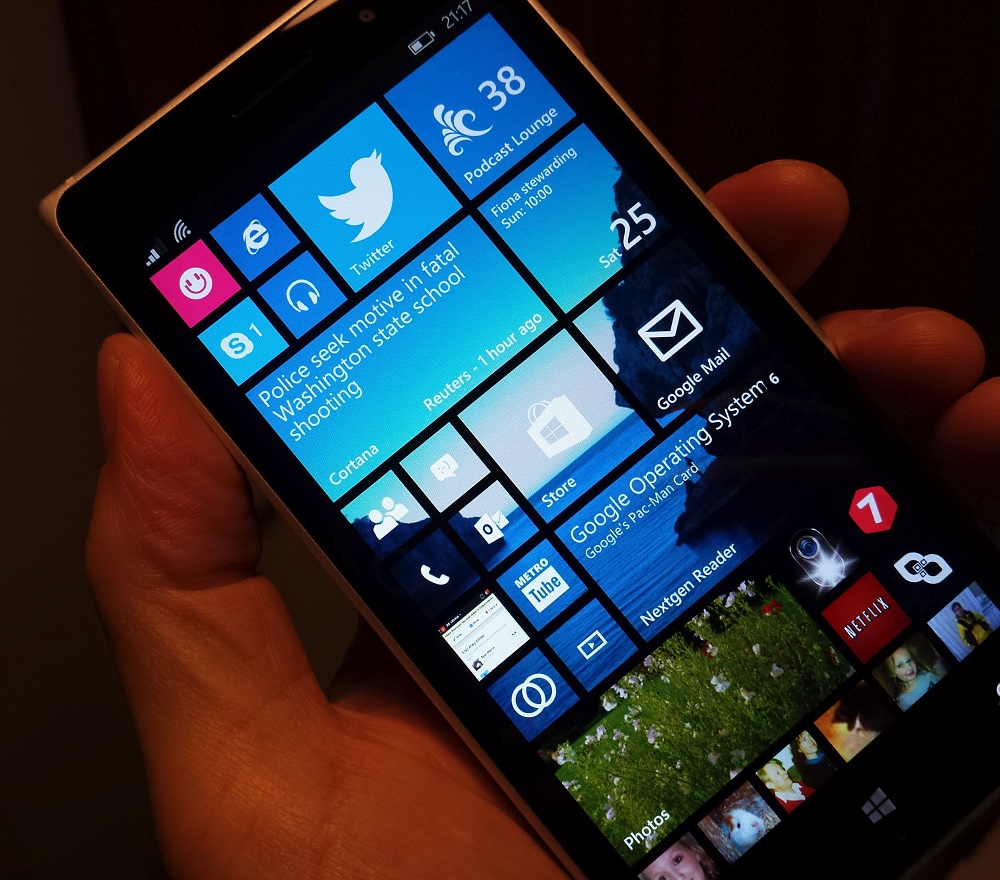So often, when comparing smartphones and ecosystems, editorials and reviews tend to concentrate on services (maps, voice assistants, social clients, etc.), the size of the third party application market (along with any high profile omissions) and holes in functionality (e.g. no Bluetooth HID profile in Windows Phone). While these are all perfectly valid aspects to look at, the experience of the real world user also builds in other aspects which aren't discussed as often.
While services, ecosystem size and platform completeness usually favour the incumbents, Android and iOS, these other aspects arguably favour Windows Phone and so I'd argue that more should be made of them by Microsoft:
Fresher
Perhaps hard to define, but most people pick up a Windows Phone device and, no matter what their views on ecosystem/platform, will admit that the interface looks fresh and different. From the live tile Start screen to the way you swipe between panorama panes of information and the relatively large typography in many places, Windows Phone certainly looks different to, arguably 'fresher' than, Android and iOS.
And, as an industry watcher, I can't help but note again that, as an operating system, Windows Phone and its UI code are around two years younger than Android's and at least three years younger than iOS/iPhone. Of course, both of these operating systems are still being updated too, so this is something of a moot point, but I'd still stand by Windows Phone being the 'freshest' (mainstream) mobile OS on the block.

more Finger-friendly
Actually, thumb-friendly, but I couldn't resist the alliteration in the title. Given that Windows Phone recently added a drop-down notifications pane (Action Center), this point may seem a little odd, but the pane is entirely optional. An awful lot of Windows Phone and its third party applications revolve around bottom-of-screen toolbars and menus, along with views that can be swiped easily with a thumb, meaning that, inch for inch, a Windows Phone is easier to use one-handed.
In contrast, many Android applications rely on (...) menus at the top of the screen, on swipes from the left and there's rarely much to do at the bottom of the screen (though older Samsung devices do have a 'hard' capacitive menu button), while iOS relies heavily on top-of-screen control icons (it's true that some of these can be obviated with swipes, but this isn't true everywhere and most users don't realise that these festures exist).
more Foolproof
This is the biggie, though. I've watched a great many normobs using smartphones, I've helped out dozens of extended family members and almost every single time a non-geek gets hold of an Android smartphone, sooner or later they become a cropper. Either internal memory is filled up so much that the OS hardly runs or updates have meant that there's not enough RAM free anymore or they've unwittingly installed various widgets and utilities and extensions that the device is groaning under the strain. Or their battery life is terrible because they've never had anyone walk them through a maze of settings that can help enormously. Or, most of all, because they run up game after game after app after game and don't realise the behind-the-scenes implications of processor load and RAM.

In contrast, iOS and the iPhone is extremely forgiving here, I've given an iPhone and iPad to two and three year olds (each week, in my case!) and have watched as they hammer into a hundred games and novelties an hour, using the home button as an escape and performance never reduces one iota because iOS protects the user from themselves and knows what to do when applications aren't in the 'foreground' anymore. The catch? iPhones start at £500 or so.
Which is where Windows Phones come in, for the normal mobile user, at least. I've done the same toddler/normob tests with Windows Phone and have had equally good results, there's simply no way to bring the operating system 'down'. Game after game, whatever the user starts, a simple press on the Windows key/control and they're back in business, with no loss in performance. Windows Phone really is pretty foolproof for the sorts of user who'd never dream of reading AAWP(!) Best of all, Windows Phones are all a lot cheaper than the iOS competition, with the majority of sales happening in the Lumia 5xx and 6xx regions, at prices around five times cheaper than iPhones.
_____
So, fresher, more finger-friendly and more foolproof - do you think this is the making of a new marketing slogan for Microsoft's mobile platform? Comments welcome!
